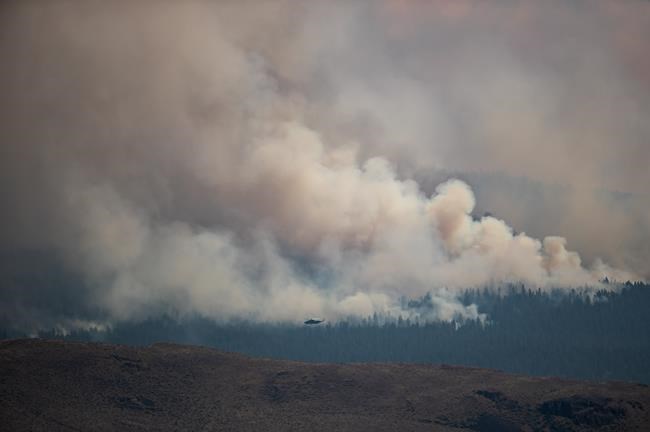British Columbia is having a tough time sourcing firefighters from some of its usual allies thanks to the COVID-19 pandemic and widespread wildfires elsewhere in the world.
There are 297 active wildfires burning across the province, and with dry, hot weather expected to continue, B.C. declared a provincial state of emergency Tuesday.
B.C. has “all of the resources we need on the ground,” but “if we had more, we would take them,” Premier John Horgan said Wednesday during a press conference in Castlegar.
There are 2,500 B.C. Wildfire Service personnel fighting the blazes, along with crews from Quebec. Firefighters from New Brunswick and Mexican are en route.
While B.C. has regularly swapped crews with Australia, New Zealand and the United States during times of need, that hasn’t been possible this year.
“In Australia, they’re on lockdown at the moment [due to COVID-19]. We had commitments from them for equipment and management personnel, and that’s very helpful, but we’re just going to have to wait and see,” Horgan said.
“The challenges here in British Columbia are being felt in Washington, Oregon and California … so the resources that we would have relied on in the past are occupied in their home jurisdictions when it comes to the U.S.”
Crews from the eastern United States are already busy fighting fires in Ontario.
“We’re not expecting U.S. resources any time soon and our friends in Australia and New Zealand are focused on COVID,” Horgan said.
“We are not alone in this challenge — we are sharing it, regrettably, with our neighbours.”
Horgan noted that extreme weather events, like this year’s sustained drought and record-breaking heat waves across B.C., are the consequences of the changing climate.
“For those who are living through yet another horrific fire season, this is a graphic reminder of how climate change is with us not just intermittently but all the time,” he said.
“We are in an early, early fire season. We’ve got weeks, perhaps months to go of very challenging circumstances.”



